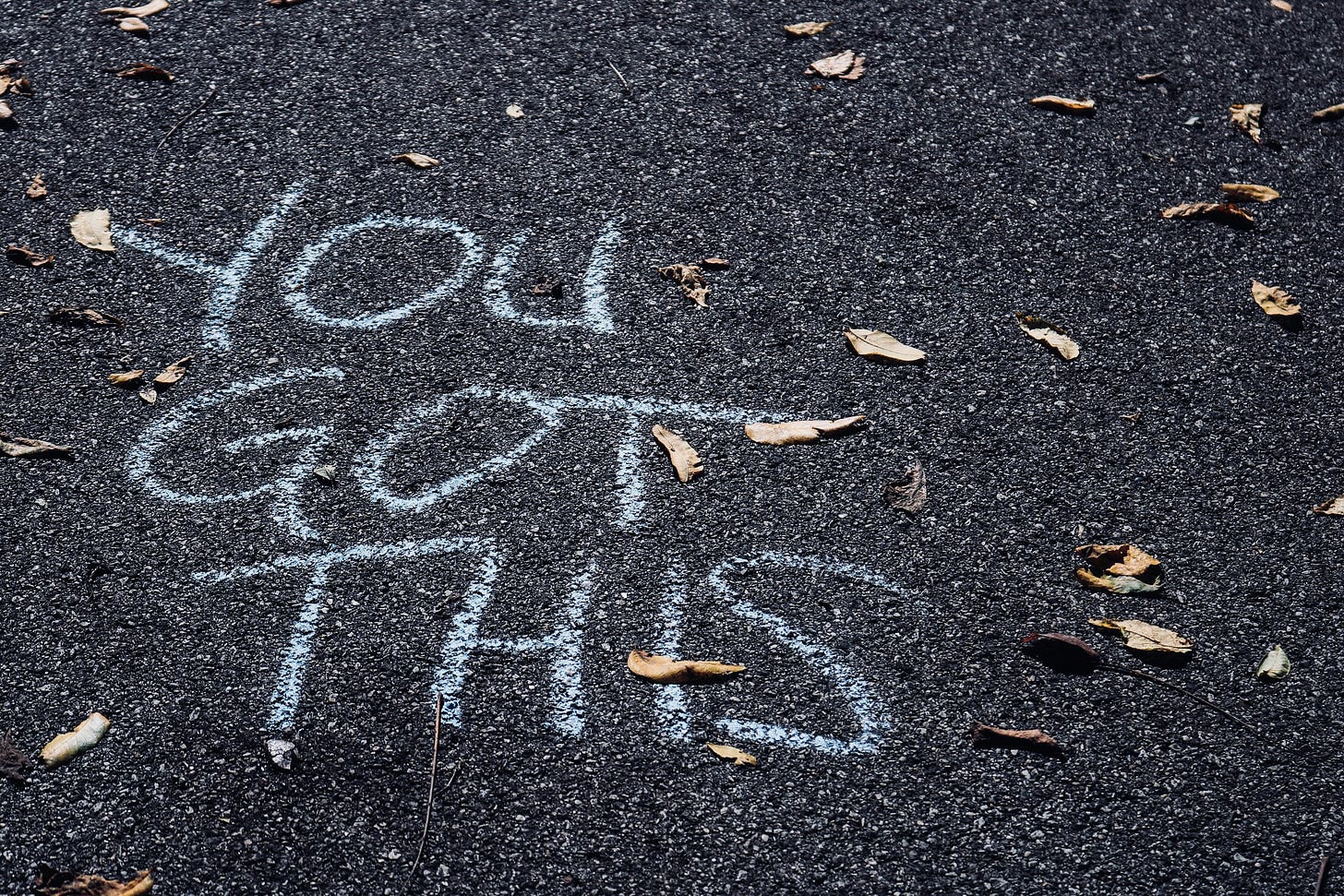Start a New Habit with Sweet Talk
Self-compassion is the key to giving a new habit a strong start.
You know how easy it is for you to comfort someone you love when they fail, but how hard it is for you to give yourself that same kindness?
Yeah…that’s a thing. We tend to be so much more judgmental and critical of ourselves than we are of other people, especially people we love. When we “fail” or don’t perform the way we expect ourselves to, it’s so easy for that inner voice to just beat us up for it.
I’m guilty of this myself! But before I dig into the science of self-compassion and invite you to practice whispering sweet nothings into your own ear, we’ve got a bit of housekeeping to sort out.
Hello to you from my new newsletter platform!
If you’re reading this, you’ve already seamlessly shifted with me from Mailchimp to my new Substack newsletter. Way to go! I love it when technology works.
To my subscribers: This transition is one of many I’m making behind the scenes to invest in the sustainability of my practice. While you have a new landing place and visual format in front of you, you’ll continue receiving what you have come to expect from my newsletters: glimpses into the inner workings of my nerding on nutrition and the psychology of eating and self-care, with practical tips for bringing what you learn into real life.
To newbies: Some of you are coming to this space from the Wellness Minneapolis newsletter and I hope you’ll stay. As a founder of that community and primary curator of that newsletter from 2014-2022, you’re already familiar with my vibe. Of course, you are welcome to unsubscribe at anytime.
And now, back to our regularly scheduled programming…
The Science of Self-Compassion (with a little nostalgia mixed in for good measure):
I studied classical music as a young person, which was really influential in my life for a number of reasons. First and foremost, it was a huge joy and pleasure. Making music also helped me express my emotions, which was somewhat overwhelming to me as a sensitive and empathic kid.
Classical music is also quite rigid: while there is room to express yourself with the music, there are right notes and wrong notes to play, which makes it obvious when you make a mistake. To play music well, you have to be willing to publicly and loudly error…a nightmare to any perfectionist.
So as a young musician, I practiced and practiced and practiced. Driven to play well, sing well, perform well. My inner voice always noted the mistakes, always heard the room for improvement.
This inner critic followed me everywhere. It fueled my relationship with food. It set the tone for my body image and intimate relationships. I was critical of every decision I made, every goal met. I always saw the opportunity to have done better.
Fast forward to January 2020.
By chance, I caught Dr. Laurie Santos’s interview with self-compassion researcher, Dr. Kristen Neff on the Happiness Lab podcast. I’m not an avid podcast listener like so many people in my life, so this really did feel like kismet. The conversation connected with something deep inside me that was yearning for this message that I’m still talking about it and sharing it with patients two years later.
In the interview, Dr. Neff talked about the data on self-criticism, comparing it to self-compassion. She shared a study that was conducted with students around test taking. Students who performed poorly on an exam were split into two groups and allowed to retake the test. The students who were critical of their performance put less time into studying and performed poorly for a second time on the exam. Students who were more kind to themselves and practiced self-compassion, studied longer and performed better.
To summarize: when we berate ourselves for not meeting our own expectations, making mistakes, even failing, we actually discourage ourselves from trying and this obstructs our opportunity to actually meet our goals.
Mind. Blown.
This translates directly into my work with clients…and my own self-care practices.
Making new habits actually takes a lot of time and energy. We have to set the goal, create a routine to practice the new habit, and then repeat it over and over (40-90 times!) before it becomes automated and effortless.
Consider how much more enjoyable and easy-feeling it would be if your inner voice was cheering you on instead of constantly pointing out the ways in which your efforts were not enough.

If self-compassion is foreign to you (or it sounds cheesy…)
take a listen to that interview by following this link or searching for the Happiness Lab on your podcast app and scrolling for the episode titled “Dump Your Inner Drill Sergeant.”
I personally have found that softening the tone of my inner voice is a mindfulness practice that just feels good in my whole person. Becoming self-compassionate is going to take me lots of practice, but I’m motivated to approach myself with more kindness, because feeling good feels good…and I’ve got a lot I want to accomplish in this life.
x o
Jesse



